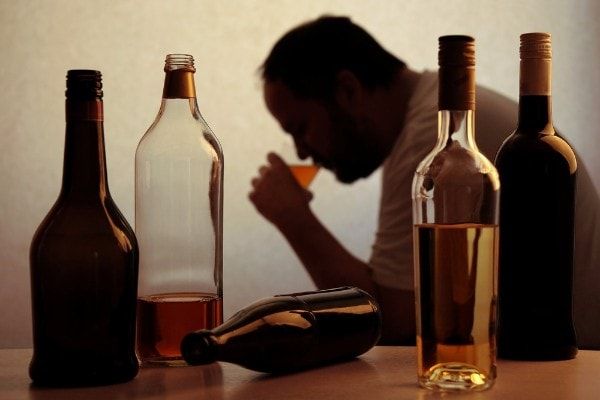3.2.3
Andropov & Late Opposition to Soviet Rule
Suppression of Dissidents, 1967-82
Suppression of Dissidents, 1967-82
After Khrushchev had reduced terror, Brezhnev and later Andropov put greater emphasis again on controlling opponents.


Continuity from Brezhnev to Andropov
Continuity from Brezhnev to Andropov
- Both Brezhnev and Andropov had conservative instincts.
- Neither had been in favour of Khrushchev's liberalisation.
- But they rejected terror and violence.
- Instead, they targeted specific people who they knew were against the regime.


Strategies of control
Strategies of control
- Andropov did not want to draw too much attention to the work of the secret police.
- During his tenure, their work was carried out behind the scenes.
- He allowed political dissidents and artists to leave the country.
- Some opponents were sent to mental asylums for re-education.
- Andropov used surveillance and formal warning letters to try to target and influence specific individuals.
- 1970s: 70,000 citizens received a police warning.
- Intellectuals and dissidents were fired from their jobs.


Andropov's success
Andropov's success
- Andropov did not deal effectively with opposition.
- Dissent newspapers, for example, continued to publish throughout the period.
- Self-published journals were known as a 'samizdat' magazines.
- When an opponent was known in the West, Andropov had to act cautiously under pressure from Western governments.
- Andrei Sakharov and Aleksandr Solzhenitsyn, for example, were allowed to remain free.
Popular Discontent, 1982-5
Popular Discontent, 1982-5
Andropov was both leader of the Soviet Union and head of the secret police. As such, tackling opponents was a significant portion of his work.


People's grievances
People's grievances
- Secret police reports revealed a number of grievances held by Soviet citizens. These included:
- Anxiety about poor living standards.
- Unhappiness with consumer products and the availability of food.
- Anger about corruption in the Party and government.


Tackling discontent
Tackling discontent
- Andropov tried to tackle corruption.
- This included investigating former Minister of the Interior Nikolai Shchelokov.
- Andropov campaigned to end drunkenness in the workplace.
- This included 'Operation Trawl'. The KGB went to parks and other public spaces to try to find those who were skipping work.
- Andropov's illness made him unable to continue these efforts.
1Communist Government in the USSR, 1917-85
1.1Establishing Communist Party Control, 1917-24
1.2Stalin in Power, 1928-53
1.2.1The Elimination of Opponents
1.2.2The Purges of the 1930s
1.2.3End of Topic Test - The Elimination of Opponents
1.2.4Stalin's Power Over the Communist Party
1.2.5Stalin's Power During & After the Communist Party
1.2.6End of Topic Test - Power Over the Communist Party
1.2.7A-A* (AO3/4) - Stalin in Power
2Industrial & Agricultural Changes
2.1Towards a Command Economy
2.2Industry & Agriculture in the Stalin Era
3Control of the People, 1917-85
3.1Media, Propaganda & Religion
3.2The Secret Police
4Social Developments, 1917-35
4.1Social Security
4.2Women & Family
5Historical Interpretations
5.1What Explains the Fall of the USSR, 1985-91?
5.1.1Economic Weakness
5.1.2Attempts at Economic Reform
5.1.3Failure To Reform The Communist Party & Soviet Gov
5.1.4Impact of Reforms
5.1.5End of Topic Test - Economic Reform
5.1.6Impact of the Nationalist Resurgence
5.1.7Impact of the Nationalist Resurgence 2
5.1.8End of the USSR
5.1.9Gorbachev & Yeltsin's Responsibility
5.1.10End of Topic Test - Nationalist Resurgence
5.1.11A-A* (AO3/4) - Explaining the Fall of the USSR
Jump to other topics
1Communist Government in the USSR, 1917-85
1.1Establishing Communist Party Control, 1917-24
1.2Stalin in Power, 1928-53
1.2.1The Elimination of Opponents
1.2.2The Purges of the 1930s
1.2.3End of Topic Test - The Elimination of Opponents
1.2.4Stalin's Power Over the Communist Party
1.2.5Stalin's Power During & After the Communist Party
1.2.6End of Topic Test - Power Over the Communist Party
1.2.7A-A* (AO3/4) - Stalin in Power
2Industrial & Agricultural Changes
2.1Towards a Command Economy
2.2Industry & Agriculture in the Stalin Era
3Control of the People, 1917-85
3.1Media, Propaganda & Religion
3.2The Secret Police
4Social Developments, 1917-35
4.1Social Security
4.2Women & Family
5Historical Interpretations
5.1What Explains the Fall of the USSR, 1985-91?
5.1.1Economic Weakness
5.1.2Attempts at Economic Reform
5.1.3Failure To Reform The Communist Party & Soviet Gov
5.1.4Impact of Reforms
5.1.5End of Topic Test - Economic Reform
5.1.6Impact of the Nationalist Resurgence
5.1.7Impact of the Nationalist Resurgence 2
5.1.8End of the USSR
5.1.9Gorbachev & Yeltsin's Responsibility
5.1.10End of Topic Test - Nationalist Resurgence
5.1.11A-A* (AO3/4) - Explaining the Fall of the USSR
Unlock your full potential with Seneca Premium
Unlimited access to 10,000+ open-ended exam questions
Mini-mock exams based on your study history
Unlock 800+ premium courses & e-books
